Martin McGuinness: 'I believe Maíria Cahill was raped'
- Published
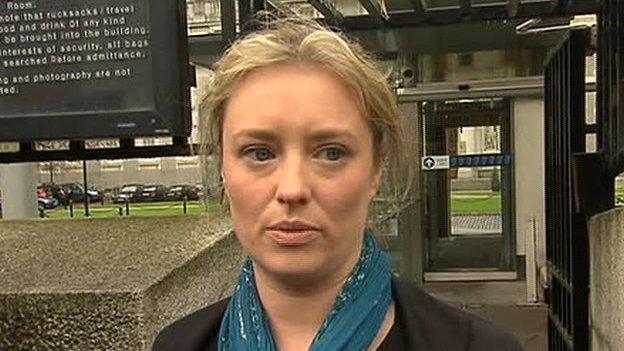
Maíria Cahill met Irish Prime Minister Enda Kenny on Wednesday
Northern Ireland's Deputy First Minister Sinn Féin's Martin McGuinness has said he believes west Belfast woman Maíria Cahill was raped.
Ms Cahill claimed she was raped as a teenager by a suspected IRA member and later interrogated by the IRA.
The man she accused, Martin Morris, has consistently denied her claims and was acquitted of all charges.
First Minister Peter Robinson said Gerry Adams should personally apologise to Ms Cahill.
Earlier this month, the Belfast woman waived her right to anonymity to speak to BBC Northern Ireland's Spotlight programme.
She said that in 1997, when she was 16, she was subjected to a 12-month cycle of sexual abuse, including rape, by a man who was believed to be a member of the IRA.
Ms Cahill described how the IRA questioned her repeatedly, often several nights a week, for months about the abuse allegations, before summoning her to a meeting with her alleged abuser in early 2000.
On Thursday, Mr McGuinness said: "I believe Maíria Cahill was raped and I, speaking personally, regret that she wasn't able to go into a court and confront the person that she alleged raped her in the same fashion that republicans are being confronted now.
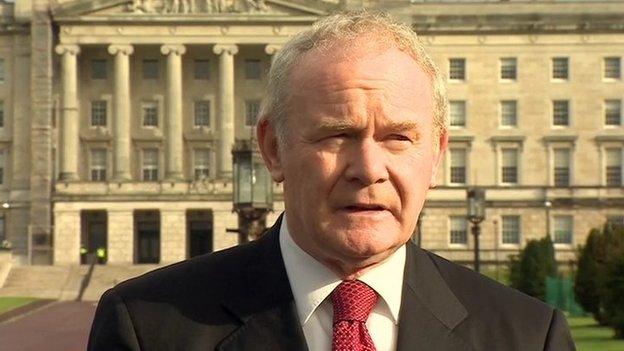
Martin McGuinness said he believed the allegation made by Ms Cahill
"That has to be the target now. The target has to be the alleged perpetrator of her rape."
First Minister Peter Robinson said: "There is a requirement for a clear apology about the way the issue was handled. Forgetting about the issue of the guilt because there have been legal proceedings.
"In terms of the role that the republican movement played in all of that, there is a requirement for a personal apology to her."
Meanwhile, the solicitor for four others accused of helping to cover up her allegation of rape has said they have been subjected to an "unprecedented media onslaught" since the Spotlight programme was broadcast.
Peter Madden, the legal representative for Padraic Wilson, Seamus Finucane, Briege Wright and Maura McCrory, said that the four had been found not guilty of the offences Ms Cahill has accused them of.
"The cases against my clients were the subject of an intensive and lengthy high-ranking police investigation. They were then prosecuted by the office of the PPS, which was represented at all times in court by an experienced senior and junior counsel. The complainant Maíria Cahill was therefore afforded every available resource the state could offer.
"There were protracted legal arguments relating to the procedures and evidence in these cases. The charge of IRA membership against Padraic Wilson was dismissed by the court at the first opportunity as there was no evidence to support it at all.
"The other charges were to be contested and ultimately Maíria Cahill, the main prosecution witness, was to be cross-examined about her version of events which was not accepted by my clients.
"She refused to allow this to take place and would not participate in the normal method of giving evidence at a trial, where the truth of her version of events would be tested by cross-examination.
"My clients were therefore found not guilty of these offences.
"In any normal society that would be the end of the matter and my clients should have been permitted to go back to their normal lives.
"However, the rule of law has been subverted by the ongoing trial by the media against my clients.
"Their acquittals have been either ignored or devalued."
In the Irish parliament on Wednesday, during a debate on Maíria Cahill, Mr Adams apologised to sex abuse victims "let down" by the IRA during the Troubles.
However, Ms Cahill said Mr Adams' apology was "not enough".
The Public Prosecution Service is to review three court cases linked to Ms Cahill's claims.
- Published22 October 2014
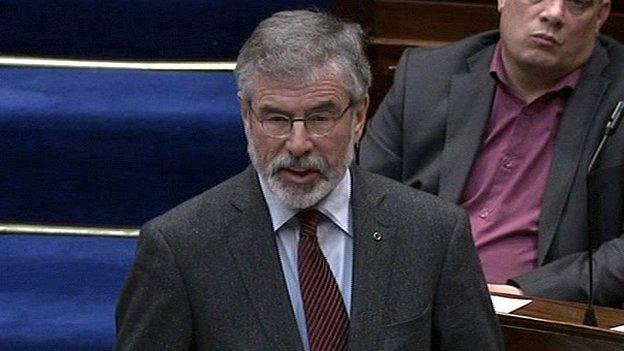
- Published21 October 2014
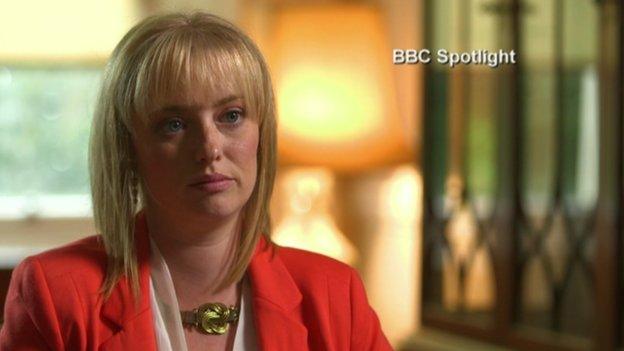
- Published15 October 2014

- Published15 October 2014

- Published15 October 2014

- Published8 May 2014
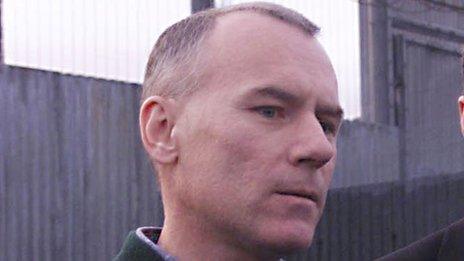
- Published15 October 2014

- Published14 October 2014
